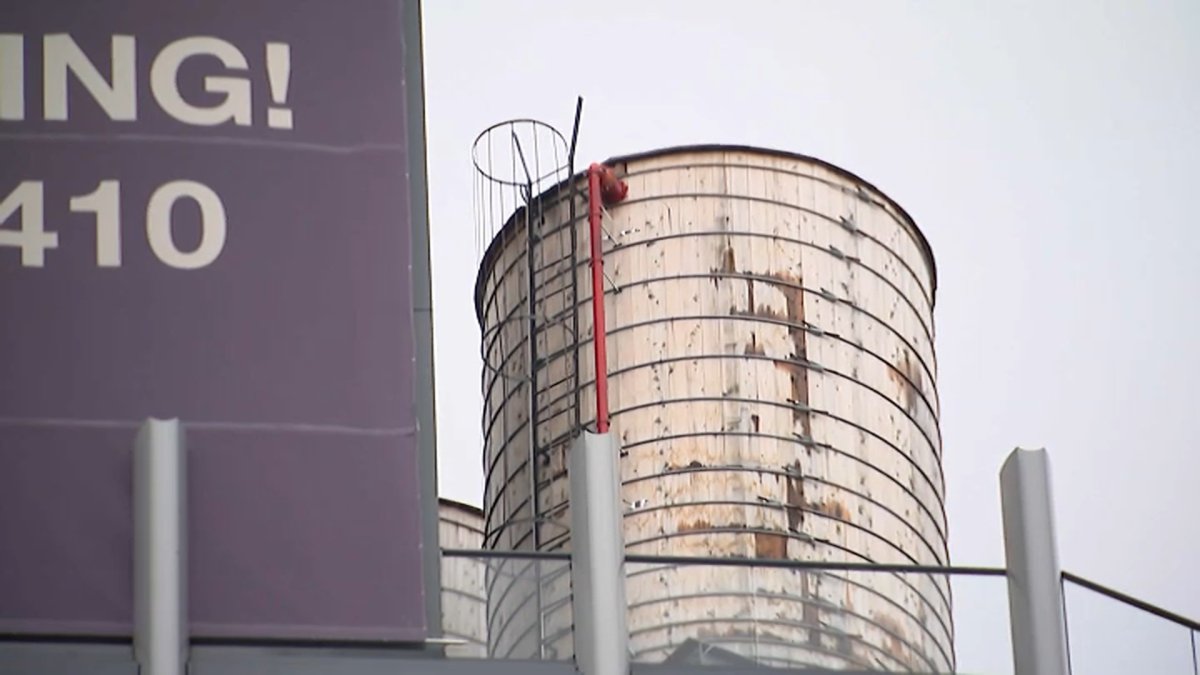Dominic Micheletti thought he had the flu in 2021.
“I got up in the morning and I didn’t feel good,” he said.
Micheletti went to St. Joseph’s Hospital on Long Island to get checked out. Test results showed it was not the flu; he had Legionnaires’ disease.
“There was a couple days and before I knew it, I got 6 or 7 people around my bed and I say ‘Oh my God, am I going to get through this?'” said Micheletti.
After just under a week in the hospital, Micheletti was back at his home in Levittown — but still afraid of what could come next.
“Am I gonna die when I go home? Am I gonna be all right? Am I gonna give it to my wife? But it was not contagious, thank God,” he said.
Symptoms of the disease include cough, fever and difficulty breathing. Some people may be at higher risk of getting Legionnaires’ disease, including those who are over 50 years old, smokers, or those with chronic lung illnesses.
Micheletti survived, but he still doesn’t know he got it. He’s just thankful it’s behind him.
“I am lucky, really,” he said.
A recent cluster of Legionnaires’ disease has led to one person’s death. Officials said 30 people have been sickened, up from 22 earlier in the week, according to the New York City Health Department. The disease was initially detected on on July 25.
There were no details immediately available regarding the person who died as a result of the illness.
The illness is “usually transmitted through being exposed to aerosolized contaminated water. That usually comes from cooling towers or HVAC systems that we see in our big buildings in New York City,” said Dr. Navarra Rodriguez, the president and chief medical officer of AdvantageCare Physicians.
Legionnaire’s, a type of pneumonia, is caused by the bacteria Legionella, which grows in warm water. The cases from the cluster have been found in five Harlem ZIP codes: 10027, 10030, 10035, 10037 and 10039, along with the bordering communities, according to health officials.
“If you’re in those ZIP codes that have demonstrated exposure, then we want you to monitor your symptoms and get to a healthcare provider as soon as you can so you can get access to antibiotics, because it is treatable,” said Dr. Tony Eyssallenne, the deputy chief medical officer for the city’s Health Department.
All cooling towers that are operating in the impacted area have been sampled, and the Health Department has told owners of buildings where positive results were found to clean them again within a day.
An investigation is ongoing.
In 2022, at least five people died of Legionnaires’ disease over the summer at a Manhattan nursing home in the city’s worst outbreak, in terms of total cases, since a cooling tower in the Bronx was blamed for an infection that caused 16 deaths. Usually, about 200 to 700 people are diagnosed each year, official health data show.
What is Legionnaires’ disease?
Legionnaires is a type of pneumonia, or a lung infection, the state DOH said.
The legionella bacteria can also lead to a milder illness called Pontiac fever, which resembles flu-like symptoms.
How does it spread?
Legionella bacteria spread when someone inhales tiny droplets of contaminated water, commonly found in hot tubs, industrial air conditioning systems, decorative fountains, plumbing systems and even drinking water.
Outbreaks often occur in large and complex water systems found in places like hotels, hospitals, and cruise ships.
The bacteria can also survive and spread in soil, occasionally causing infections when people garden using contaminated soil.
However, in most cases, people do not transmit Legionnaires’ disease or Pontiac fever to others.
What are the symptoms?
Symptoms of Legionnaires disease typically appear between two to 10 days after exposure to the bacteria and can include:
- Headache
- Muscle aches
- Shortness of breath
- Cough
- Fever
The New Jersey Department of Health noted that the symptoms can be similar to those of COVID-19 and other respiratory illnesses like the flu. Only tests ordered by a doctor can confirm a diagnosis.
Who is at higher risk?
Those most susceptible to Legionnaires’ disease include adults over 50, individuals with weakened immune systems or chronic conditions, and smokers.
It is rarer for healthy people who are exposed to the legionella bacteria to develop Legionnaires’ disease.
Can it be treated?
Antibiotics are used to treat Legionnaires’ disease, though it often requires hospitalization.
Anyone suspecting exposure to Legionella or experiencing symptoms of Legionella disease or pneumonia should promptly contact a doctor. It’s important to mention any exposure to Legionella, hot tub use, recent travels, or hospital stays in the past two weeks.
For more information on Legionnaires’ disease, visit the CDC website.
